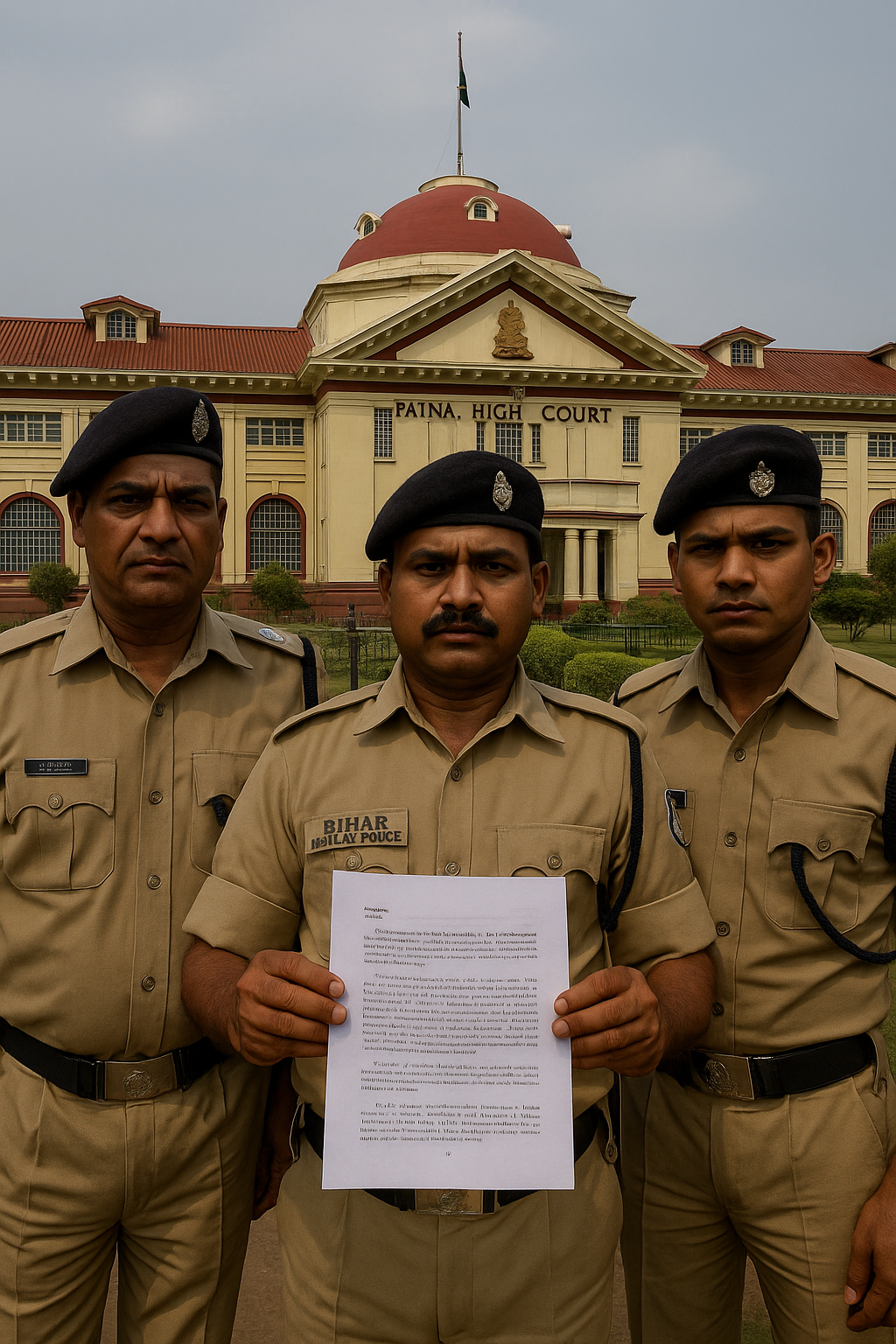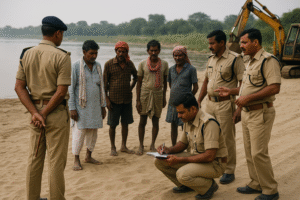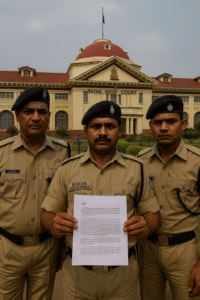Simplified Explanation of the Judgment
The Patna High Court, through a detailed judgment delivered on 16 April 2021 by Hon’ble Mr. Justice Anil Kumar Upadhyay, settled a long-standing dispute concerning wrong fixation of pay and recovery of ACP (Assured Career Progression) benefits granted to personnel of the Bihar Military Police (BMP).
The Court was dealing with a batch of writ petitions filed by several constables and havildars serving in different battalions of the BMP. The grievance of the petitioners was that after they were granted first and second ACP benefits, the Government later withdrew these benefits and ordered recovery of alleged excess payments, even though the employees had not committed any fraud or misrepresentation.
Background
The petitioners, all working as constables, had been granted:
- First ACP around 2008,
- Second ACP between 2010 and 2013.
Under the ACP scheme, a government employee who does not get promotion for several years is entitled to a financial upgradation in a higher pay scale.
In this case, the constables were initially given:
- First ACP in the pay scale of Assistant Sub-Inspector (ASI) ₹4000–6000, and
- Second ACP in the pay scale of Sub-Inspector (SI) ₹5500–9000.
Years later, the Home Department and Police Headquarters realized that the correct pay structure under the ACP Rules was:
- First ACP → pay of Havildar ₹3200–4900, and
- Second ACP → pay of ASI ₹4000–6000.
Accordingly, the department downgraded their pay and ordered recovery of the excess amount already paid.
Petitioners’ Argument
The petitioners, represented by Mr. Abhay Shankar Singh and Mr. Y.V. Giri (Sr. Advocate), argued that:
- They were innocent recipients of the pay revision made by the department itself.
- There was no fraud, misrepresentation, or concealment from their side.
- The benefit had been granted after due scrutiny and remained unchallenged for nearly a decade.
- The department woke up only after 10 years, which made recovery arbitrary and unfair.
- They cited landmark Supreme Court judgments including:
- Syed Abdul Qadir v. State of Bihar (2009) 3 SCC 475, and
- State of Punjab v. Rafiq Masih (2015) 4 SCC 334,
where it was held that recovery after long delay or without employee’s fault causes undue hardship and should not be permitted.
Government’s Argument
The State, represented by the Advocate General, contended that:
- The ACP was granted provisionally, subject to correction.
- When a mistake is discovered, the department has every right to rectify it.
- They relied on the Supreme Court ruling in High Court of Punjab & Haryana v. Jagdev Singh (2016) 4 SCC 78, where recovery was upheld because the employee had accepted the benefit conditionally.
- They also argued that the recovery for the second ACP (2010–2013) was made within 5–7 years, which is reasonable under the law.
Court’s Reasoning and Decision
The Patna High Court carefully analyzed the legal position and arrived at a balanced conclusion.
- Legality of ACP Correction:
- The Court upheld the Government’s action in correcting the pay scales.
- It ruled that constables are entitled only to:
- Havildar’s pay for first ACP, and
- ASI’s pay for second ACP.
- The earlier fixation granting ASI and SI scales was erroneous.
- Recovery for First ACP (2008):
- The benefit had remained in force for nearly nine years.
- No fraud or misrepresentation was alleged.
- Following the principles of equity from Syed Abdul Qadir and Rafiq Masih, the Court held that no recovery should be made for the first ACP period.
- Recovery for Second ACP (2010–2013):
- The Government took action within five to seven years.
- Hence, limited recovery could be allowed, but only in easy installments to prevent hardship to employees.
- Direction to Authorities:
- Authorities must finalize the correct pay fixation (Havildar for 1st ACP, ASI for 2nd ACP).
- Any recovery must be made gradually and compassionately.
- The entire process must be completed within three months of receiving the judgment.
- Partial Relief:
- The writ petitions were partly allowed.
- Correction of pay scales was upheld, but recovery for the earlier ACP period (2008–2010) was barred.
Significance or Implication of the Judgment
This judgment is significant for thousands of police and military police personnel across Bihar who received ACP benefits during the same period.
- It establishes that employees cannot be penalized for errors made by the department in granting pay benefits.
- Recovery after long delay is impermissible unless there is clear fraud.
- The Court struck a balance between administrative correction and employee protection — allowing pay rectification but restricting recovery.
- The judgment aligns with the Supreme Court’s humanitarian approach in service matters, where recovery from lower-rung employees can lead to financial hardship.
- For the Government, it provides clarity that corrections must be timely — excessive delay weakens their case in equity.
Legal Issues and Court’s Findings
- Whether the Government could revise ACP benefits granted years earlier?
✅ Yes, correction of pay fixation is lawful if an error is discovered. - Whether recovery of excess payment after a decade is valid?
❌ No, recovery after an inordinate delay violates principles of fairness. - Is recovery allowed for payments made within a reasonable time (5–7 years)?
⚖️ Yes, but must be made in easy installments to avoid hardship. - Was there any fraud or misrepresentation by the petitioners?
❌ No, hence full recovery would be inequitable.
Judgments Referred by Parties
- Syed Abdul Qadir & Ors. v. State of Bihar & Ors. (2009) 3 SCC 475
- State of Punjab v. Rafiq Masih (White Washer) (2015) 4 SCC 334
- High Court of Punjab & Haryana v. Jagdev Singh (2016) 4 SCC 78
- Sahib Ram v. State of Haryana 1995 Supp (1) SCC 18
- Shyam Babu Verma v. Union of India (1994) 2 SCC 521
- Col. B.J. Akkara (Retd.) v. Government of India (2006) 11 SCC 709
Case Title
Petitioners (Constables and Havildars, Bihar Military Police) v. State of Bihar & Others
Case Number
Civil Writ Jurisdiction Case Nos. 6910, 1744, 7117, 7255, 8050, and 8065 of 2020
Citation(s)
2021(2) PLJR 716
Coram and Names of Judges
Hon’ble Mr. Justice Anil Kumar Upadhyay
Date of Judgment: 16 April 2021
Names of Advocates and who they appeared for
- For the Petitioners: Mr. Abhay Shankar Singh, Advocate; Mr. Y.V. Giri, Sr. Advocate
- For the State: Mr. Lalit Kishore, Advocate General; Mr. Manish Kumar (GP 4); Mr. P.K. Verma (AAG 3)
Link to Judgment
MTUjNjkxMCMyMDIwIzEjTg==-5j–am1–FK–am1–SfnDk=
If you found this explanation helpful and wish to stay informed about how legal developments may affect your rights in Bihar, you may consider following Samvida Law Associates for more updates.








